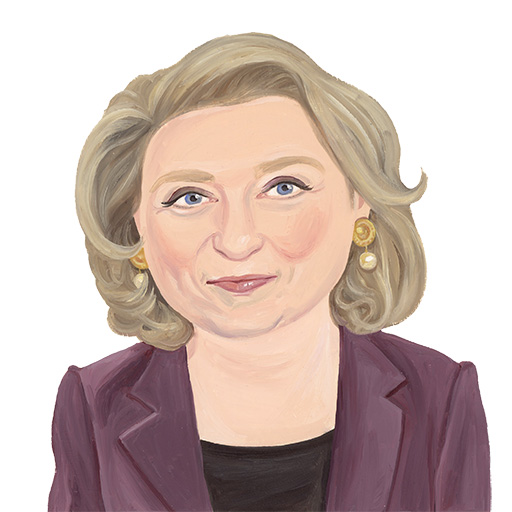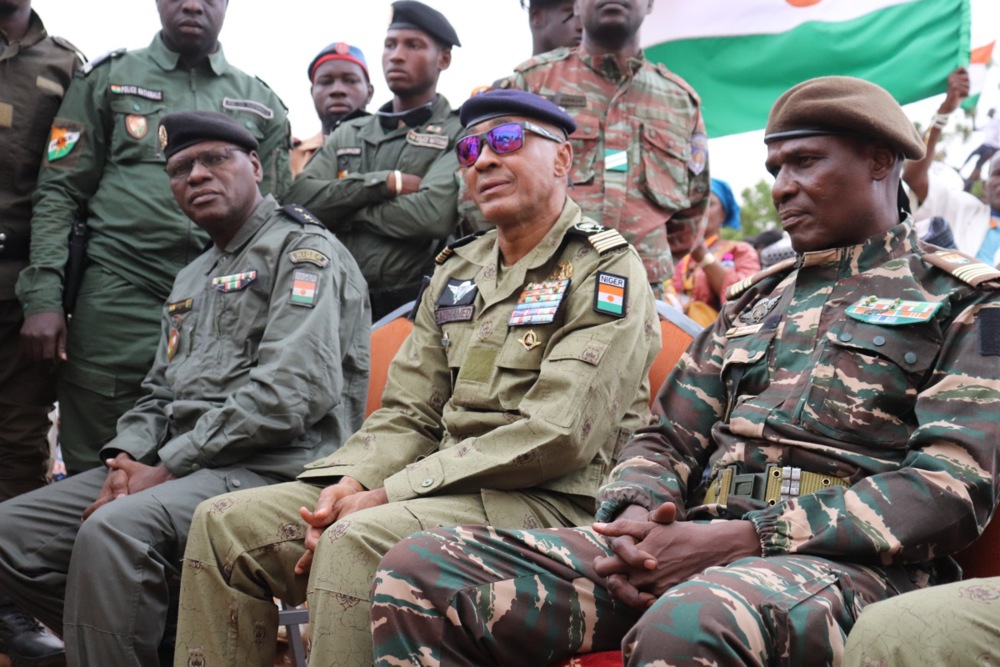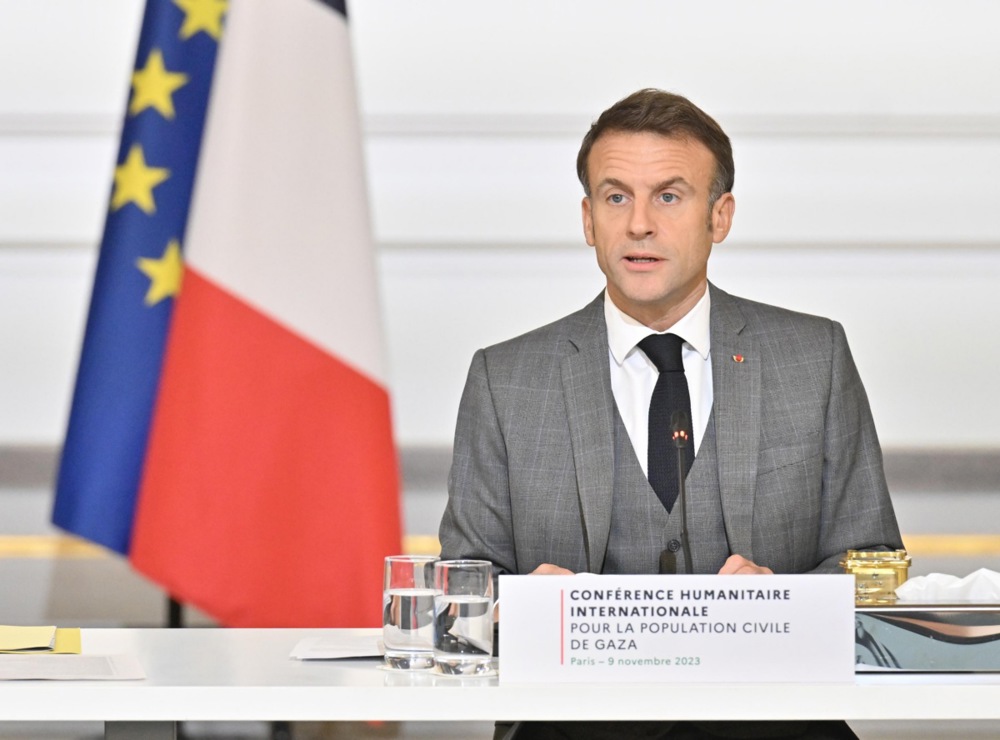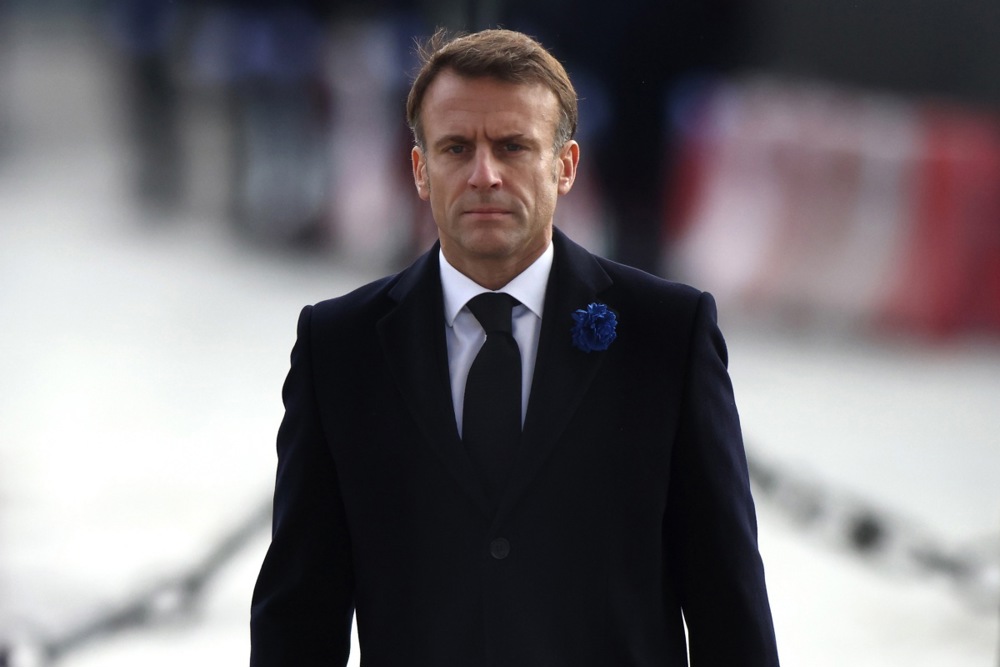It started with the effective kickoff of his four-month projected “Estates General of Information”, and ended with the 6th Paris Peace Forum. Last week, between Tuesday and Friday, French president Emmanuel Macron first set out to “restore French public confidence in the nation’s press”, then to “create the conditions for peace in the Middle East”. Ambitious aims, but Macron, a firm believer in lofty talking shops, especially the ones he has created out of thin air, believes the press and the world are holding their breath waiting for his advice.
The Estates General, an expression borrowed from the historic convening of the three orders of the French nation by King Louis XVI in 1789 — which started the French Revolution — is meant to regulate and reshape the way the French media deliver the news. Macron and his spokespeople say they want to “reconcile the French people with their press” which is “no longer adapted to our modern society”, being “hidebound”, “corporatist”, “not rigorous enough”, with “unprofessional commenting”.
Better press regulation is needed to “guarantee the democratic imperative”, as well as a halt to “concentration of media ownership” in the hands of a few billionaires. Among le président’s campaign promises, re-stated now, was “to protect free information from interference” and “to secure the funding of independent free information as well as the production of documentaries”. (The bizarre mix of performative high principles and micromanaging is a Macron hallmark. Decisions big and small during his presidency are only confirmed once he’s approved them personally.)
If this junkyard of technocratese, reeking of the dead hand of a hundred consultants, hasn’t yet frozen your blood, consider that the Steering Committee set up to manage this unwieldy elephant is headed by Bruno Lasserre, a 69-year-old mandarin with zero press experience. Lasserre appointed fewer journalists than all-purpose “experts” (sociologists, business people, and many civil servants) in a structure supposed to organise “debates” and “consultations” across the country. This, too, is the Macron style, first tried out after the Yellow Vests crisis, when he crisscrossed France seeking for citizens to charm and impress, in a process known as Le Grand Débat — in which, Fidel Castro-like, Macron answered questions from a well-shepherded public with great eloquence for hours (and hours).
This time he will delegate (barring last-minute surprises). The first public discussion, sorry, “Agora”, because why not invoke the shade of Pericles at this stage, will take place in Auxerre, Burgundy, in two weeks’ time. There will be more, and a regurgitation of new insights will finally take place at the Sorbonne around June of next year.
The whole process aims to look grand, thorough, high-minded, but the headings and talking points give the game away. Like many a politician before him (don’t tell him, he thinks he is unique), Emmanuel Macron believes the press must conform to the State’s view of what constitutes “proper” information. To his mind, commentary shouldn’t enter into it (comment praising his political genius is excepted). It is telling that of all the press barons owning major French media, Macron (and a good chunk of mainstream outlets, led by the State broadcasters Radio France and France Télévisions), essentially targets the avowedly Catholic conservative businessman, Vincent Bolloré.
Bolloré recently acquired Paris Match and Le Journal du Dimanche, prompting an exodus of journalists unhappy with his right-wing beliefs; but his main claim to disrupting the French media ecosystem is having created France’s answer to Fox News or GB News, CNEWS, out of a little-watched cable news channel that was included in his acquisition of the entertainment behemoth Canal Plus.
In under 7 years, CNEWS has become the home of lively debate with conservative hosts (Eric Zemmour filling the Tucker Carlson spot until he left for a presidential run in 2021) and started outperforming its competition. This enrages many people, who say the channel is not abiding by its duty to provide diversity of points of view. You might argue CNEWS does supply an alternative to the relentless Leftist mood music originating from French state radio, which makes the BBC sound tabloidy in comparison.
The reassuring note here is that the Estates General, like so many previous grandiose concepts, are unlikely to have concrete effects. (The general belief of this administration is that something exists if you’ve talked about it enough.) Hence the creation, soon after Emmanuel Macron’s first presidential victory, of the Paris Peace Forum, in which the Voice of France, largely shielded from a Foreign Ministry he doesn’t trust, is one Macron, E.’s own.
The Peace Forum’s programme included panels on press and digital regulation, where the line was the one pushed for the Estates General (essentially more digital regulation and overseeing of social media by government -inspired bodies). That was largely overshadowed by the war between Hamas and Israel. Furthermore, a consistent line was hard to define, especially as Emmanuel Macron, within three weeks, seems to have gone from a projected international coalition led by France to combat Hamas, to demanding a ceasefire he first dismissed in a BBC interview where le président seemed to echo the pro-Palestinian slogans of recent Paris and London marches. Instead, a good part of his long speech streamed yesterday concerned “guarantees” the Forum would reach on saving the oceans and the poles from global warming.
The consensus among Macron watchers in Paris is that his urge to push for a distinctive French Third Way in every available international crisis is rooted in the realisation that without a parliamentary majority, he is increasingly hamstrung domestically. He knows how well an active foreign policy worked to repair the reputation of the then-unpopular Jacques Chirac at the time of the 2003 Iraq war. (In fact Macron has even re-enacted moments of Chirac’s greatest hits, restaging incidents that had played well on television.) His other aim, those familiar with him say, is to win a Nobel Peace Prize of his own, Barack Obama-like. He knows term limits prevent him from running a third time, and he is facing three more years of a difficult job in difficult conditions. A blessing from the Oslo sages, he feels, would make it all worthwhile.






Europe’s capital needs media to challenge the status quo: That’s why Brussels Signal is launching